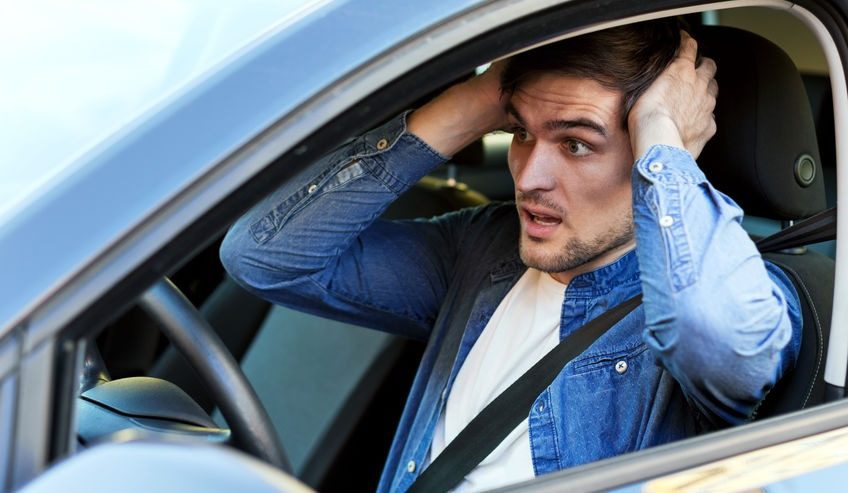Sadly, and frequently, road accidents happen, and protocol must be followed.
The Law guides us on what to do and, with supported info from Wheels 24 and Southland Sun, we’ve got a checklist of dos and don’ts to help you cope with an emergency.
Car accident dos and don’ts:
1. Do stop after impact.
Adv. Jackie Nagtegaal at Law for All told Wheels24 that, “if you decided to hit and run, you could face a fine of up to R180,000, time behind bars (up to 9 years) or both."
2. Do check if anyone is hurt (you, too!).
Remember that some injuries (like internal bleeding or concussion) may not be felt or seen, so rather be safe than sorry (and responsible for someone’s death due to negligence). Call for emergency medical help for the injured – it helps to have the number on speed dial in case you feel muddled during an emergency.
Ambulance: call 10177
3. Do call the police if someone is injured.
When calling the fire department, ambulance, or police, Southland Sun suggests you have the following info handy: your phone number (they may call back); a second phone number to reach you on (in case your battery dies); the location (street name, number if possible, and nearest road crossing); and a simple description of what happened; how many people are (possibly) injured; if there is a fire.
Police/Ambulance: call 10111
4. Do move the cars (with official permission only).
Wheels24 points out that if someone is injured, “only a police or traffic officer is allowed to indicate whether or not the cars may be moved from the scene of the accident.” So, once the injured are seen by medical professionals and you have the permission of a police or traffic officer to do so, or if no one is hurt AND the damage to cars is minimal, move the cars to safety so that traffic can flow past freely.
5. Do report the accident within 24 hours.
If no one is injured, no policeman will visit the scene, and no record of the event will exist. In that case, the accident must be reported to the police within 24 hours. It doesn’t matter if nobody is laying charges. You will also need a case number for an insurance claim.
6. Do remember that it’s your legal right to claim for damages to your car if another driver caused the accident. Proof/witnesses may be required.
7. Do put your faith in facts, not promises.
It doesn’t have to be a hit and run for someone to disappear soon after they’ve smiled and said they’ll pay for everything in the accident they just caused. Dishonest service providers on the scene may also take advantage of your shock to overcharge you. Get the personal details of everyone of relevance at the scene of the accident, including:
- full names, contact details (physical address, email and phone numbers), and ID numbers of the other driver(s);
- names, ID numbers, phone numbers and role of witnesses, any police officers or traffic officers there, and any medics present.
Takedown a detailed description of the other car(s) involved, including colour, make and model, and registration number.
8. Don’t admit it was your fault.
The shock of impact may cause you to assume it is your fault. Even if you feel you are responsible for the accident, or you may be partly at fault for causing the mishap, saying so on the scene can be a bad idea. It may negatively affect an insurance claim. Besides, you were in the accident, not watching it and evidence may suggest otherwise.
9. Don’t forget to make notes.
The more time passes after the event, the more you may forget. Details count and dash cam or CCTV footage may not be allowed as evidence. What’s more, if the guilty party won’t pay, you may choose to present your own case to the small claims court (claims under R15k, no lawyer required) or magistrate’s court (claims over R15k, a legal representative is recommended). You’ll need the finest of details for all these instances. Write it down soonest.
10. Don’t forget that it’s not necessarily over when you leave the scene.
There may be follow-ups after the incident, from insurance claims to police investigation to legal action. Adv. Jackie Nagtegaal advised conscientious drivers involved in an accident to “keep in mind that you could face criminal charges for reckless driving, negligent driving, culpable homicide, civil damages claims or a civil claim for personal injury, to name a few."
11. Don’t forget the paper trail.
Keep a detailed record of all parts of the repair and claims process, including official quotes, invoices and payments.
12. Don’t fix your car before you’ve recorded the damage visually.
You need proof to process an insurance claim. The company fixing the damage may also record it for their purposes, but make sure you have your own versions in case they lose it.
13. Don’t claim on an accident after 3 years.
You can try, of course, but by then it will have lapsed and there will be no legal recourse (no way to recover financial losses that resulted from the accident), wasting everyone’s time and disappointing you.
Finally, you can’t claim if you’re not covered. Protect yourself against the costs of an accident by quoting and buying dotsure.co.za car insurance online in minutes.
More:
Here's how to report minor accidents.
Here’s how to claim with dotsure.co.za.



